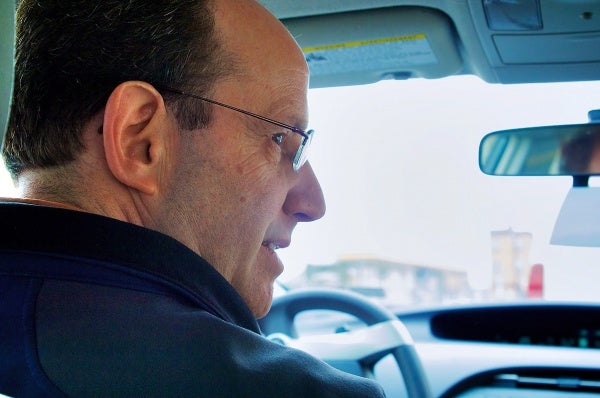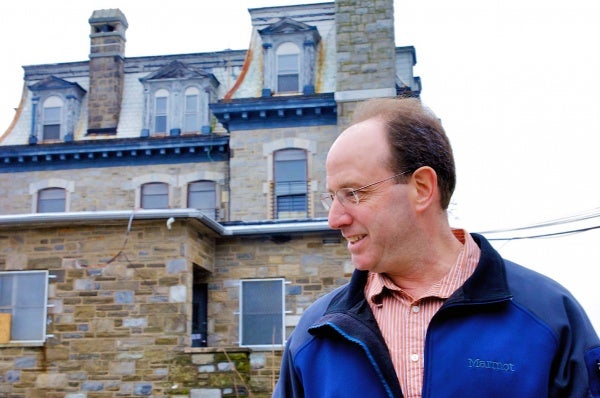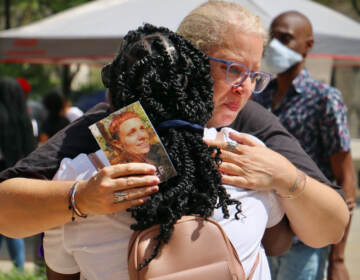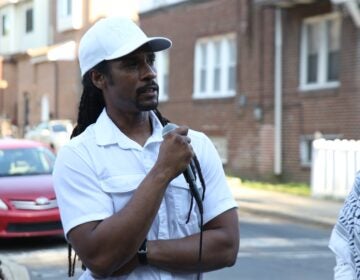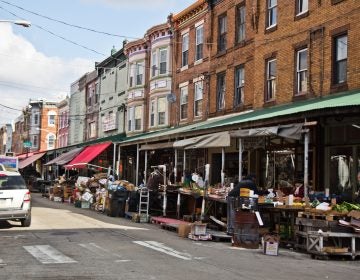Taking inventory of what Germantown Settlement physically left behind
The counting is complete at the former Germantown Settlement Charter School campus, where the new owners have tallied the remains left behind when the school shut its doors three years ago.
The demise of the charter school had been years in the making, but the school finally closed after the School Reform Commission declined to renew its charter. The school was serving more than 400 students in grades 5 through 8 at two locations.
New ownership
As NewsWorks reported, developer Ken Weinstein bought 4811 Germantown Ave., a former Catholic school campus that had housed grades 5 and 6, as part of an effort to collect and redevelop key properties in Germantown’s commercial districts. Grades 7 and 8 were located at the school’s “north campus,” on Wayne Avenue.
Along with the Germantown Avenue property came rooms full of supplies, equipment, furniture and debris, seemingly from both school buildings, that had been stored, or dumped, in the administration building, schoolhouse and a small, detached auditorium building.
Weinstein said he intends to clean out and make repairs to the school buildings and the attached chapel — where students were often sent when maintenance emergencies drove them from classrooms — and offer them for commercial development.
The other building on site, the former convent, has been occupied by New Directions for Women, Inc., a private incarceration alternative for women, for 22 years. That building will be renovated, and New Directions may eventually use some office space in the administration building.
People seeking leftovers
After our March 5 story describing Weinstein’s burgeoning efforts in Germantown, he heard from some people curious about the office machines and equipment. Now, he’s wondering whether neighborhood groups could use them.
“These groups should be the first to benefit from the downfall of Germantown Settlement,” he said.
Noah Krey, director of marketing and leasing for Philly Office Retail, spent last weekend with a crew combing through the properties, pulling out some of the trash and making a count of what’s there.
“We counted everything down to trash cans and folding chairs, so it was pretty comprehensive,” Krey said. “There are a lot of really, really old computers.”
What to do with what was left
Among the inventory, they counted:
• 32 church pews, each 16 feet long;
• 400 student desks;
• 120 blue plastic chairs;
• a piano (“old, ornate and broken,” Krey described it);
• 54 metal file cabinets and shelving units;
• 52 tower-style computers (but only 16 monitors);
• eight Ricoh copy machines;
• 11 assorted printers in various states of usability;
• 29 metal lockers and
• 20 classroom science kits dated 2004.
Now, they’ll figure out what the do with it all. First will come basic repairs to the buildings, chronically neglected under Germantown Settlement.
From there, any number of possibilities remain, including a business incubator or co-working type use in the administration building, and possibly another school. Weinstein’s company, Philly Office Retail, has heard from one existing charter school and one potential school, interested in possibly using the buildings.
“That school-house building, it would take a lot to turn it into anything else,” Krey said, and the fact that at least some of the classroom furniture is still in usable condition is a plus. “If we can get a school in there, we might be able to use it as furnished school rooms.”
****
NewsWorks has partnered with independent news gatherer PlanPhilly to provide regular, in-depth, timely coverage of planning, zoning and development news. Contact Amy Z. Quinn at azquinn@planphilly.com.
WHYY is your source for fact-based, in-depth journalism and information. As a nonprofit organization, we rely on financial support from readers like you. Please give today.










